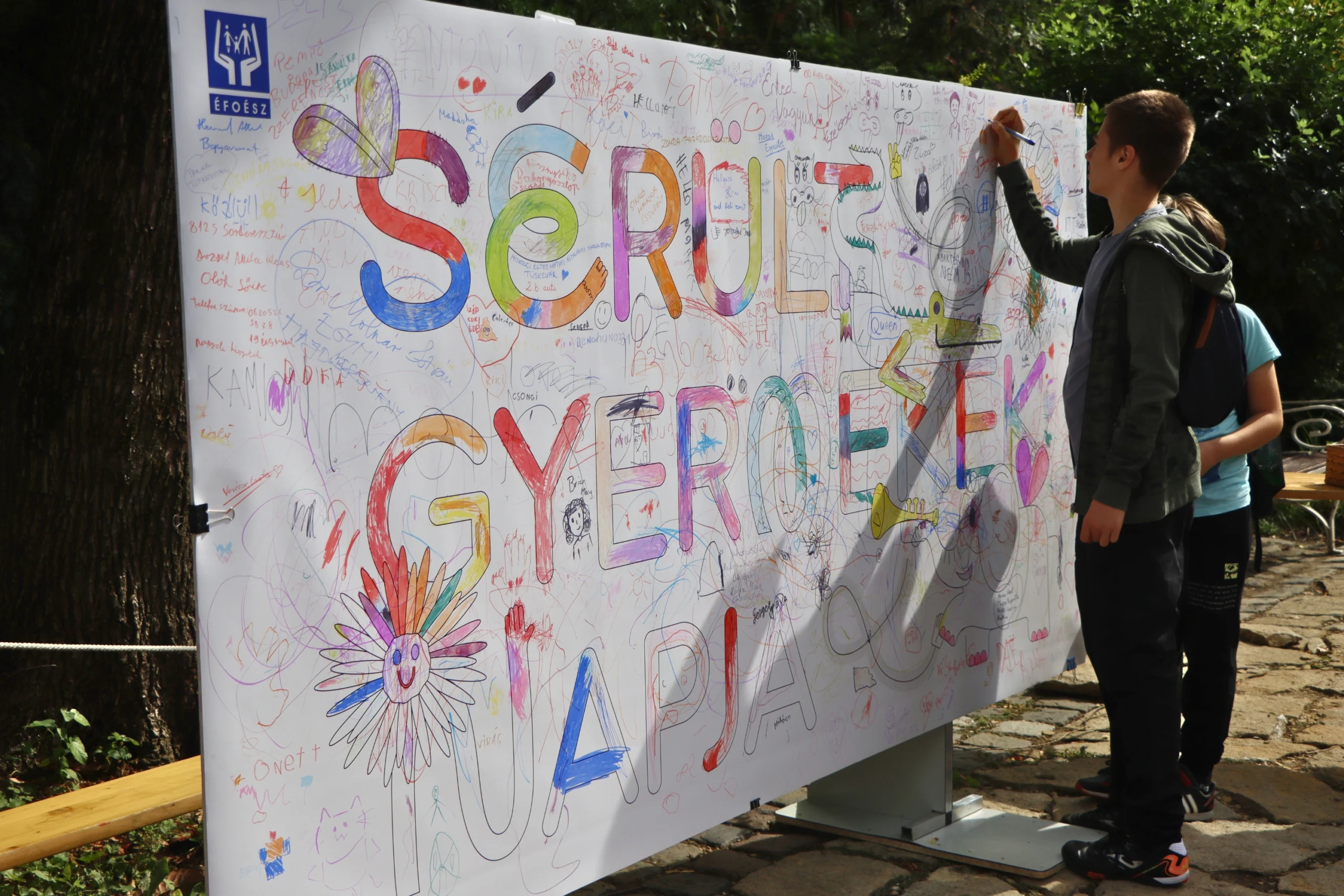In just over a month, we will once again hold the Day of Children with Disabilities, organized together with the National Federation of Associations for People with Intellectual Disabilities and Their Helpers. This will already be the thirty-third event of its kind. Besides this now traditional program, the Zoo also takes part in many other forms of social responsibility.

The Budapest Zoo & Botanical Garden, like most zoos, has several public service missions. Even providing nature-based leisure activities for the general public, especially for families, is part of this mission. Considering that most of humanity now lives in cities, where people’s connection to nature is becoming weaker and the effects of urbanization stronger, it is clear how important such opportunities are. A zoo visit offers exactly that, while also being an excellent family activity, often involving three generations together (children, parents, grandparents). In addition, zoos play an important role in education, awareness raising, environmental education, and conservation work – all of which also benefit society.
Alongside these efforts, our Zoo also has a long tradition of social responsibility. We find it especially important to pay attention to the specific needs of people living with disabilities. To this end, in 2013 the Zoo signed a wide-ranging agreement with representative advocacy organizations, including the Hungarian Federation of the Blind and Partially Sighted, the National Association of the Deaf and Hard of Hearing, the Hungarian Association of the Deafblind, the National Federation of Associations for People with Intellectual Disabilities and Their Helpers, the National Federation of Associations of People with Physical Disabilities, and the Hungarian Autistic Society. Thanks to this cooperation, visitors holding a valid ID from these organizations, as well as their accompanying helpers, can visit the Zoo with significant discounts.
As early as the 1980s, we organized special educational programs for visually impaired children, and even today we continue to offer activities where suitable animals can be safely experienced through touch. We also support blind and partially sighted people through another initiative launched in 2005. As part of this program, we placed small sculptures around the Zoo, showing mostly iconic animals or historic buildings. These works of art are installed in accessible spots so they can be touched, and they are also provided with Braille explanations to support learning.
The Day of Children with Disabilities has more than three decades of history. The first event was held in 1992 in cooperation with the National Federation of Associations for People with Intellectual Disabilities and Their Helpers, and since then it has taken place every September, with only one exception (when it had to be cancelled due to the COVID-19 pandemic). This year, on September 16, 2025, we will celebrate the thirty-third event. We are especially proud of this tradition, as in the late 1980s and early 1990s, when we started these programs, the concept of “social responsibility” was not yet in use in Hungary, and such initiatives were extremely rare.
In 2004, the Zoo joined the “Dreamnight at the Zoo” program. The idea is that once a year, usually on the first Friday of June, participating zoos host a special evening event for chronically ill children and their families. The initiative began in 1996 at Rotterdam Zoo, where, in cooperation with the Sophia Loren Hospital, 175 children with cancer were invited with their families for an unforgettable evening. What began as a one-time event soon became a tradition. By 2000, Amsterdam Zoo had also joined, and in the following years more and more zoos from around the world took part. Today, over 300 zoos participate. The year 2004 was the first time Central European zoos joined, including Budapest. Since then, we have hosted Dreamnight every year. This year we again organized the event, in cooperation with the Down Foundation. The program is not only supported by the Zoo itself but also by our staff personally, as those who help run the event do so voluntarily, in their free time after working hours.
There are many more examples of how the Zoo contributes to social responsibility. These include the HolidayZoo Camp (VakációZoo) for disadvantaged children, an exhibition of artworks created by children with spinal muscular atrophy, hosting families living in temporary homes run by the Social and Rehabilitation Foundation, and welcoming young visitors from earthquake-affected areas of Turkey and refugee families from Ukraine. Last year, in cooperation with the Game Master Experience Program (Játékmester Élményprogram), we also organized charity collections: school supplies for the National Association of Large Families and plush toys for the Pediatric Traumatology Department of the Dr. Jenő Manninger National Institute of Traumatology.
All of these show just how broad our activities are in the field of social responsibility. We are happy to have been able to help in so many different ways, and we thank everyone who has contributed. At the same time, we encourage everyone to look for opportunities themselves to offer help wherever they can.